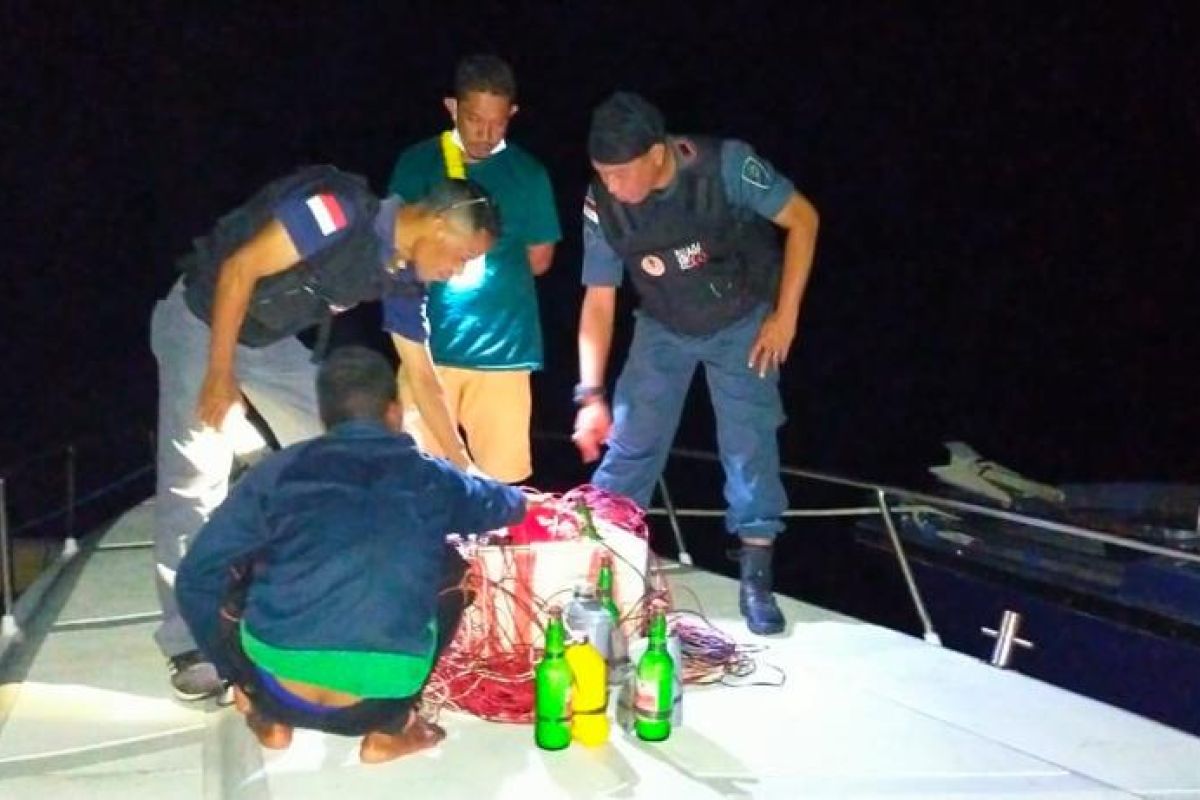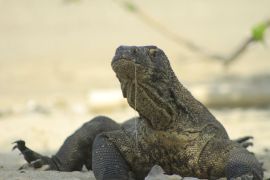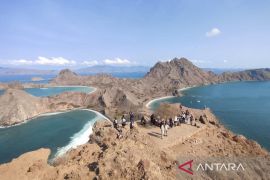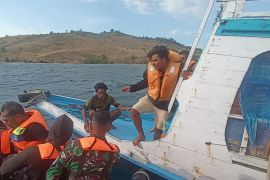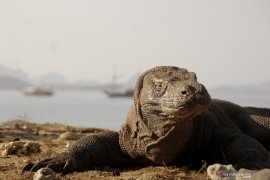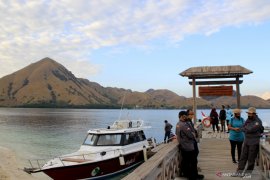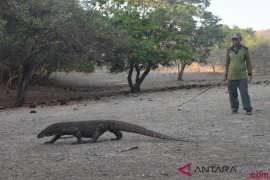The suspects are identified by their initials as Ed (27), Re (15), Ya (16), In (28), and Ya (31), according to Muhammad Nur from the Environment and Forestry Ministry.
The five were arrested by officials of the ministry's law enforcement division while poaching in the waters of Laju Pemale Strait, Komodo District, on Sunday (April 11) evening.
"We have seized several items of evidence," Nur, head of the ministry's law enforcement division-Java, Bali, and Nusa Tenggara office, stated here on Wednesday.
The confiscated items comprised a motorboat, 26 Molotov cocktails, 19 deactivated detonators, an activated detonator, 16 LED lamps, a wooden boat, and a compressor.
The ministry's officials also seized some 300 kilograms of fish that they had caught in the waters, Nur remarked, adding that blast fishing was detrimental to the national park's coral reefs.
Nur pointed out that several local fishermen had continued to practice the blast fishing method. To address the problem, the ministry will continue its efforts to enforce the law against them.
While intensifying routine patrols around the waters of the Komodo National Park, the ministry also launches its public awareness campaign in communities on a frequent basis, he noted.
The crackdown will be continued on those conducting blast fishing to deter others from committing this act of environmental crime, he affirmed.
The authorities have charged the fishermen for violating Indonesia's laws on environmental protection that makes them liable to serve a 10-year prison term and pay a fine of Rp10 billion.
Indonesia is an archipelagic country, which is blessed with vast and deep coral reefs.
According to Matthew R. P. Briggs' study in 2003, the area of coral reefs in Indonesia is estimated to reach around 86 thousand square kilometers.
This figure constitutes around 14 to 18 percent of the world's coral reefs. These vast coral reefs are believed to be a blessing from God Almighty, as their economic value alone is estimated to reach at least US$1.6 billion per year, according to the study.
Herman Cesar calls these coral reefs and their associated marine life as one of Indonesia's greatest natural treasures in 1996.
However, several factors have posed an increased threat to this gift. The outcomes of Cesar's study in 1996 revealed that the threats are mostly posed by humans, who conduct activities, including blast fishing, poison fishing, overfishing, and tourism development.
Despite the fact that blast or dynamite fishing is not the only factor that has contributed to the damage caused to the country's coral reefs, it does make Indonesia suffer huge economic losses.
Briggs noted that Indonesia could suffer net economic losses of over $920 million over the next two decades owing to blast fishing practiced by certain traditional fishermen in different parts of Indonesia since World War II.
This blast fishing practice has come under the radar of both local and foreign media outlets that have attempted to cover issues pertaining to the root causes of the problem, impacts of this destructive fishing practice on coral reefs, and risks looming large over the fishermen conducting blast fishing.
Florian Kunert, a German filmmaker, is one of the foreign journalists, who had produced documentaries on blast fishing practices in the Indonesian territorial waters.
Related news: Navy arrests fisherman over fish bombing charges in East Flores
Related news: Patrol team arrests two fishermen on charges of blast fishing
Translator: A.Lewokeda, Rahmad Nasution
Editor: Gusti Nur Cahya Aryani
Copyright © ANTARA 2021
